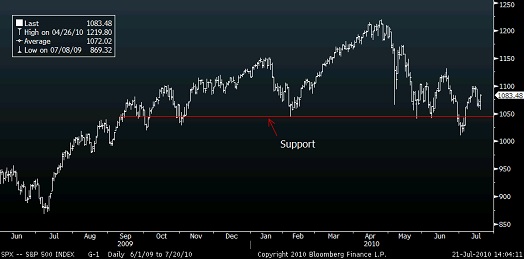
Table of Contents
Fundamental Analysis - Stock Trading
Fundamental analysis is one of the tools for investors to understand stock trends. It is helpful in gathering the right information to determine the value of the stock and whether you should buy or sell the stock. With fundamental analysis traders look at the stock’s Intrinsic Value (true value) by evaluating related financial, economic, industrial and political factors.
What is Fundamental Analysis (FA)?
Successful traders usually build a path to profits by separating companies that are fundamentally strong from the fundamentally weaker ones. It is a method of analysing the financial health of a company by looking at the Income statement, cash flow, Balance Sheet and other documents.

The goal with FA is to find companies that are trading at a discount from their intrinsic value. The intrinsic value is the true value of the stock. It is a price of the stock, based solely on factors inside the company. This also means eliminating the external noise involved in Market prices.
So the traders trade in such stocks hoping the price to go high when the market recognizes their quality, leading to higher profits.
The Basics of Fundamental Analysis
The factors to consider when conducting fundamental analysis are:
- Financial stability of the company
- Year-on-year performance
- Growth rate & sales rate
- Past track record
- Market share
- Competitive analysis
- Company’s debt record
- Employee rate
- Corporate image
- Management
Along with these following parameters, considering the current economic and politic scenario is important.
Talk to our investment specialist
Types of Fundamental Analysis
Fundamental analysis is of two types—qualitative and quantitative. Here’s a look at these two concepts:
Qualitative Analysis
This analysis captures the qualitative aspect of a business like the company’s management, ethics, brand value, reputation on the market, corporate governance practices, consists of business strategies, etc.
Well, qualitative analysis is highly subjective. It is also a non-mathematical study by investors to make an investment decision. Some traders believe that knowing the integrity and skills of a company and the best way to judge and decide on the investment. However, it may take years to master qualitative analysis.
Quantitative Analysis
It allows you to understand the Financial Performance of a company. The analyst conduct method by using financial ratios like-
- Balance sheet
- income statement
- Cash Flow Statement
- Ratio analysis
Both, qualitative and quantitative analysis has its own merits and demerits. While some investors support quantitative analysis as it serves as a useful evaluation tool, others may consider looking at the qualitative part of the company.
The Objective of Fundamental Analysis
Determining the value of the stock
FA helps in determining whether a stock is valued correctly in the market. Once the investor determines the numeric value of the asset, then they can compare it to the current market value to assess whether the asset is overvalued or undervalued.
Rational decision
This analysis help traders to gather the right information to make rational decisions in taking the position. The traders look at the state of the Economy, politics, current market and also study micro factors of the company.
Fundamental analysis of stocks uses future growth, revenues, Earnings, return on equity, and a variety of other data & financial ratio to see a company’s performance and value. This mainly involves looking at a company’s financial statements for months or years.
Long-term approach
FA is good for long-term investments. It helps in predicting long-term economic, demographic, consumer trends and this helps investors to pick the right stock of the company or Industry. Fundamental analysis can help discover companies with valuable assets.
Some of the most legendary investors like Warren Buffet, Graham, David Dodd and John Neff are seen as the champions of long term and Value investing.
The Concept of Intrinsic Value
In financial terms, the true value of the stock is known as intrinsic value.
For instance, let’s assume that a stock of the company is trading at Rs. 50. But, after doing an detailed analysis, you determine that the real worth of a stock is Rs. 55. So, you have determined the intrinsic value of a stock to be Rs 55.
Fundamental traders would love to buy this stock because the price of the stock will go higher in the future.
How to do Fundamental Analysis?
Here are a handful of things that shouldn’t be missed when examining Capital structure analysis of a company.
1. Reality Behind Earnings
In case you are not full time into fundamental analysis but own enough stocks, you must make sure that you constantly keep an eye on real-time data pertaining to the finances of the company. Also, this data is something you must be aware of in terms of authenticity. Don’t forget to compare figures wherever they are repeating just to ensure the similarity.
2. Evaluating the Company’s Cash
When it comes to the Financial Structure analysis of a company, monitoring this aspect is extremely important. Before you invest even a buck, you want to rest assured that the company has enough, right? Keeping this in mind, concentrate on:
- Company’s cash on the balance sheet
- Cash that the company generates
- Cash that the company owes in short and long terms
Keeping a track on these variables will help avert Investing your hard-earned money in a company that may not have enough survival chances.
3. Inspecting the Competition
Often, buying stocks of such a company that is currently doing best could be tempting. However, that is not where your work ends. Considering that companies are evolving and changing, sometimes, a rival may rise from the dust unexpectedly, making more money than expected. Thus, valuating the leaders in the industry, along with their competitors, is something you should not miss.
4. Ensuring you Don’t Have to Overpay
There are numerous aspects that can help you comprehend the price of a stock. What you must not forget is that stock prices are generally set through trading shares by sellers and buyers until there is a common price everybody settles upon. This is one reason why you should also assess how profitable a company is and if it has enough power to stay in business for a long time. Even if you get positive results with company analysis introduction, make sure that you don’t overpay in any manner.
5. Management Team and Board Members Evaluation
As an investor, you will be at the mercy of the management team to come up with accurate decisions as far as your money is concerned. You can count upon the board of directors to keep an eye on the management team. However, if you think you will not be able to trust both these teams, you must reassess the decision of investing in that company.
6. Difference Between Promise and Delivery
It is completely up to you to verify promises and claims made by the company while navigating through the process of fundamental analysis. If you hear that the company’s products are selling greatly, take some time to evaluate the revenue growth and turnover. This will help you ensure how customers are buying products and paying for them. And, if the company has posted profit records, verify the claims before you make any investment.
Talk to our investment specialist
Conclusion
Fundamental analysis is distinct from the other equity analysis called Technical Analysis. There, investment decisions are taken based on the patterns of the company’s historical share price, and not much attention is paid to the financial performance of the company.
When it comes to fundamental analysis, there is in-depth research and arithmetic involved. If you want to hold your long-term investment, then it is important to understand if your investment in that company will give you profits or not. FA helps in filtering out companies that are financially strong and will potentially give profits in the long-run.
All efforts have been made to ensure the information provided here is accurate. However, no guarantees are made regarding correctness of data. Please verify with scheme information document before making any investment.












